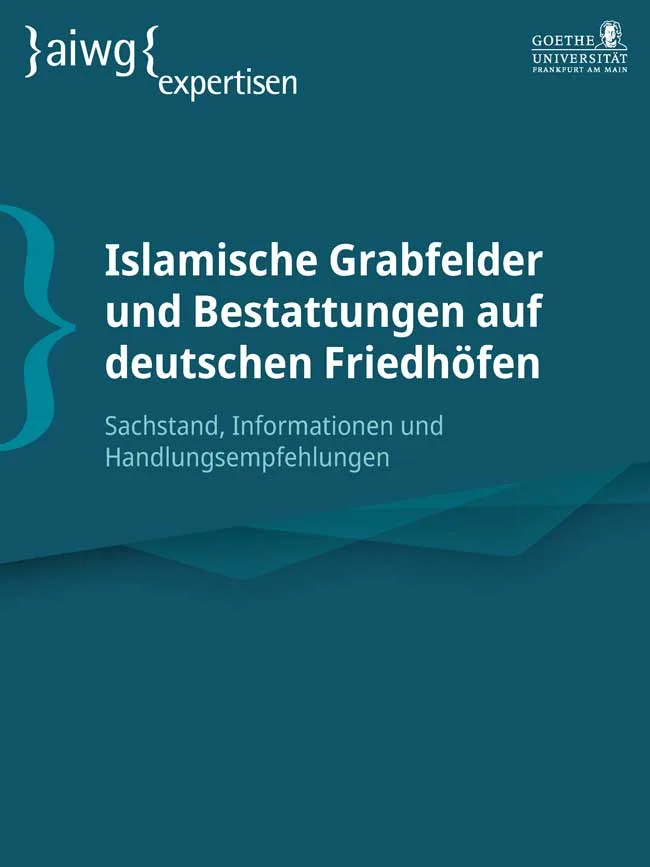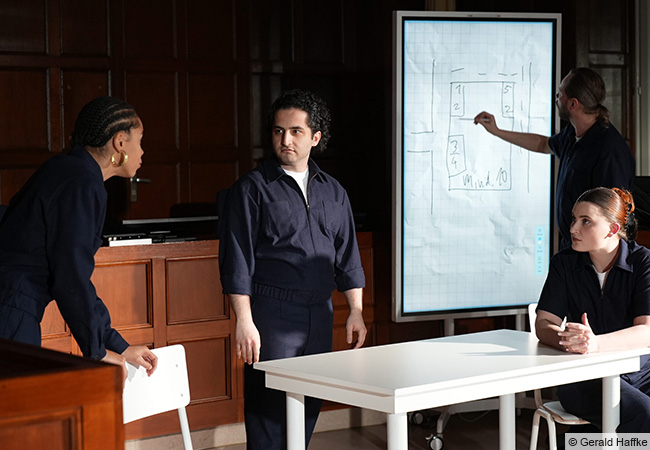More than 5.5 million Muslims live in Germany, a growing number of whom want to be buried here after their death. This rising demand for Islamic burials presents German municipalities and Muslim communities with a variety of challenges.

Without a coffin, facing Mecca – these are the religious guidelines according to which Muslims are traditionally buried. But to what extent do contemporary German cemeteries meet these guidelines? What solutions have cemetery operators found to enable burials according to Islamic rites?
AIWG’s recently published report “Islamische Grabfelder und Bestattungen auf deutschen Friedhöfen” [“Islamic burial grounds and burials in German cemeteries”] provides the first accurate reflection – based on a broad database – of the current status of Islamic burials in municipal cemeteries in Germany. As part of his research fellowship for the AIWG expertise, the main author, Prof. Thomas Lemmen of the Catholic University of Applied Sciences of North Rhine-Westphalia, carried out a quantitative survey. Some 86 percent of the more than 300 cemetery administrations nationwide that have Islamic burial plots took part in the poll, whose data shows that from a legal point of view, there are few obstacles to burial in conformity with Islam. Put differently: German burial law largely takes into account the religious beliefs of Muslims.
The high level of interest shown by cemetery administrations in Islamic burials reflects the changing reality of Germany as a migration society. An important study result is the finding that, in the municipal context, the successful implementation of burial regulations has been the result of the discourse between cemetery administrations and Muslim interest groups.
„Cemetery administrations in Germany are very well positioned to meet the challenges of setting up Islamic burial plots. The fact that the overwhelming majority of them not only took part in the extensive survey, but also that many cemetery administrations are now in close contact with local Muslim communities, is a sign of successful integration and functioning interfaith cooperation,“ says Thomas Lemmen.
The publication not only includes empirical data and information on historical developments, but also illustrative material as well as articles on rituals and practical issues relating to the religious principles and procedures of Islamic burials, written by Dr. Özgür Uludağ.
„Part of life is the end of it, with the place of burial serving as the final and eternal resting place. Funeral directors, local authorities and cemetery administrators also have to address growing religious and ideological heterogeneity. This expert report provides important information not only for them, but also for academics working on the subject. Beyond that, it is aimed at Muslims and their institutions, who are not only confronted with specific religious questions in the event of death in Germany, but also with official and practical challenges,“ says AIWG managing director Dr. Raida Chbib.
The full publication (in German) can be downloaded from the AIWG website.
About the authors
Prof. Dr. Thomas Lemmen is an honorary professor in the Faculty of Social Sciences at the Catholic University of Applied Sciences North Rhine-Westphalia’s Cologne department, and director of the part-time Master’s course „Interreligious Dialog Competence“. His research focuses on the fundamentals and practical approaches of interreligious dialog as well as current topics related to Muslim life in Germany. From October 2021 to June 2022, he worked as a research fellow at the AIWG on the project „Islamic burials in Germany: A review of the adaptation of state and municipal burial regulations to the religious needs and expectations of Muslims in Germany“. You can read more about the AIWG research fellowship here.
Dr. Özgür Uludağ studied Islamic Studies, Philosophy, Political Science, Turkish Studies and Sociology of Migration at the University of Hamburg. He completed his doctorate at Kiel University with a dissertation on „Islamic burials and the decision-making process when choosing a grave location“. In addition to his studies, he worked for many years as a funeral director at Muslim funerals. As part of his AIWG practice fellowship, he created a multimedia website on Islamic funerals in Germany, which is available at (in German). Website.







